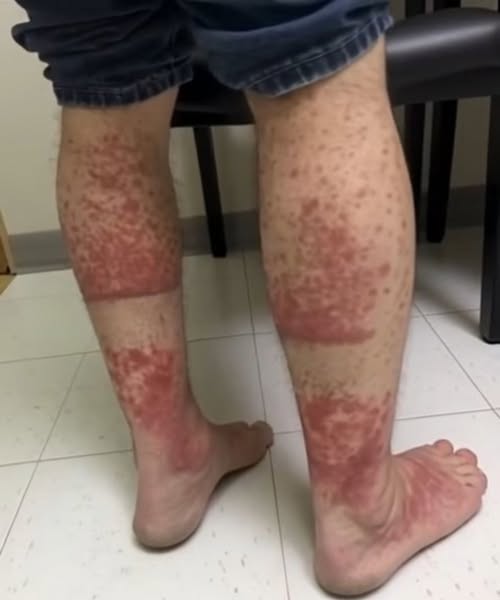ADVERTISEMENT
😴 Here Are Some Problems That Can Happen If You Don’t Get Proper Sleep

ADVERTISEMENT

ADVERTISEMENT
Sleep is when your brain consolidates memories and clears out toxins (via the glymphatic system)
Lack of sleep leads to:
Poor focus
Slower reaction times
Reduced problem-solving skills
Chronic sleep loss is linked to higher risk of dementia and Alzheimer’s
📊 One study found just one night of poor sleep increases beta-amyloid (a brain plaque) by 5% (Nature, 2018).
2. Weakened Immune System
During sleep, your body produces cytokines, proteins that fight infection
Poor sleep = fewer cytokines = higher risk of colds, flu, and long-term illness
People who sleep less than 6 hours/night are 4x more likely to catch a cold than those who sleep 7+
✅ Sleep is your immune system’s best ally.
3. Increased Risk of Heart Disease
Chronic sleep deprivation raises:
Blood pressure
Inflammation
Stress hormones (like cortisol)
Linked to higher risk of heart attack, stroke, and hypertension
🩺 Adults who sleep less than 6 hours per night have a 20% higher risk of heart disease (European Heart Journal, 2022).
4. Weight Gain & Metabolic Issues
Sleep affects hormones that regulate hunger:
Ghrelin (hunger hormone) increases
Leptin (fullness hormone) decreases
People who sleep less tend to eat 300–500 extra calories per day
Linked to insulin resistance and type 2 diabetes
✅ Even one week of poor sleep can reduce insulin sensitivity by 30%.
5. Mood Disorders & Emotional Instability
Sleep and mental health are deeply connected
Lack of sleep increases risk of:
Anxiety
Depression
Irritability
Emotional reactivity
fMRI scans show sleep-deprived brains overreact to negative stimuli
🧠 Insomnia is a predictor of depression, not just a symptom.
6. Reduced Libido & Hormonal Imbalance
Poor sleep lowers testosterone in men and disrupts estrogen balance in women
Leads to lower sex drive, fatigue, and relationship strain
Growth hormone (essential for repair) is mostly released during deep sleep
✅ Quality sleep supports hormonal health — naturally.
7. Accidents & Poor Decision-Making
Drowsy driving causes over 6,000 fatal crashes per year in the U.S. (NHTSA)
Sleep deprivation impairs judgment like alcohol:
After 18 hours awake = similar to a 0.05% BAC
After 24 hours = legally drunk in most states
⚠️ Sleep loss is a silent epidemic in workplaces, hospitals, and homes.
✅ How Much Sleep Do You Really Need?
Adults (18–60)
7+ hours per night
Older Adults (61+)
7–9 hours
Teens
8–10 hours
Children
9–12 hours
✅ It’s not just quantity — quality matters. Restless, interrupted sleep isn’t restorative.
💡 Tips for Better Sleep
Stick to a sleep schedule
Regulates your internal clock
Limit screens 1 hour before bed
Blue light suppresses melatonin
Avoid caffeine after 2 PM
Can stay in your system for 6–8 hours
Create a calming bedtime routine
Signals your brain it’s time to rest
Keep your bedroom cool, dark, and quiet
Ideal for deep sleep
Final Thoughts
You don’t need to be perfect.
But you do need to prioritize sleep — because it’s the foundation of everything:
🧠 Your mind.
❤️ Your heart.
💪 Your energy.
😊 Your mood.
So next time you’re tempted to burn the midnight oil…
ask yourself:
“Is this worth my health?”
Because true productivity, happiness, and resilience don’t come from hustle.
They come from rest.
And that’s not opinion.
It’s science.
ADVERTISEMENT
ADVERTISEMENT